Confidence, knowledge gap are factors in HCP adoption of DTx
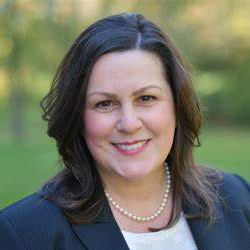
By Joan-Marie Stiglich, ELS, Healio Chief Content Officer
Published February 27, 2023

Because there has been so much buzz about digital therapeutics (DTx) being transformative to health care, Healio sought out health care provider insights on current knowledge of and sentiment towards DTx. Healio Research found the potential to be somewhere between “DTx is the future of medical practice” and “no idea what it is.”
Recently, the FDA announced the appointment of former Oracle SVP Troy Tazbaz to a new position – Director of Digital Health Center of Excellence (DHCoE). On his LinkedIn page, Tazbaz wrote that the DHCoE is “responsible for enabling digital therapeutics and technologies that contribute to the ongoing modernization of healthcare in the United States.”
Modernization of healthcare
DTx, a subset of digital health, “deliver[s] to patients evidence-based therapeutic interventions that are driven by high quality software to treat, manage, or prevent a disease or disorder,” according to the Digital Therapeutics Alliance.
There are now about 40 FDA-cleared DTx products and the sector is gaining momentum. So, if healthcare modernization by way of DTx is coming, are the providers ready?
Healio Research disseminated a survey of 8 questions to US physicians, residents, NPs and PAs. The survey received a total of 869 responses.
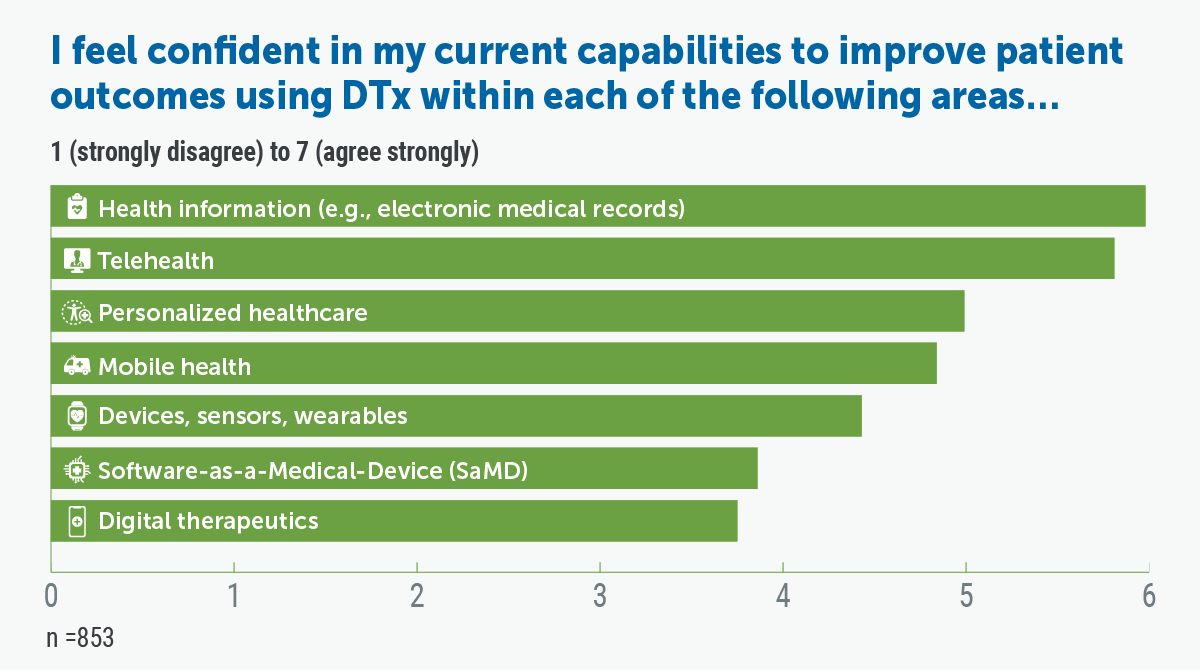
Healio Research Digital Therapeutics Survey (DTx)
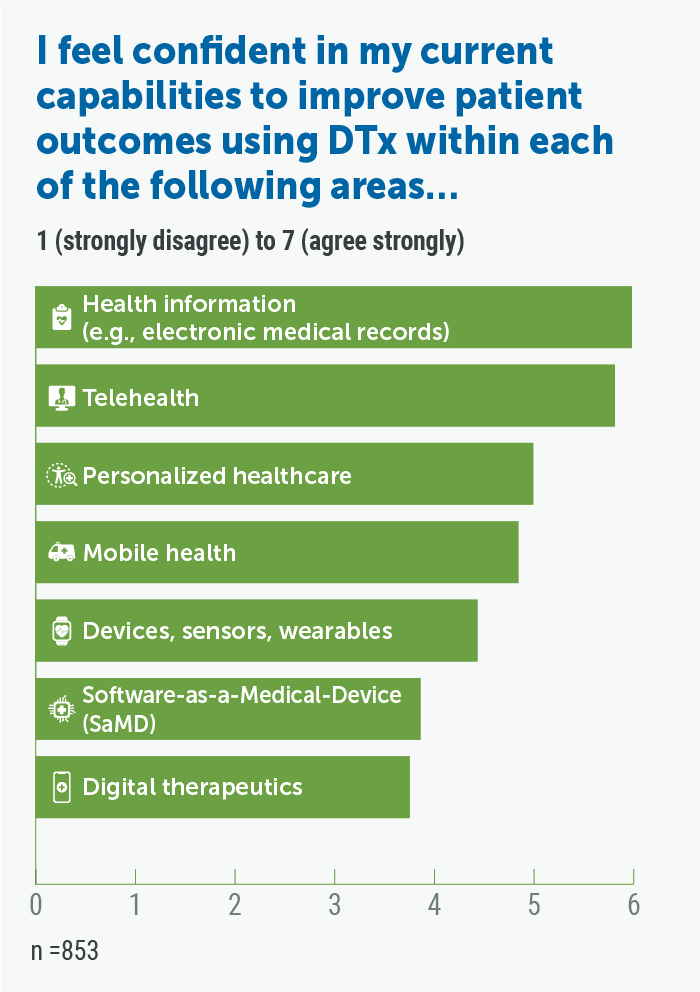
Healio Research Digital Therapeutics Survey (DTx)
Areas of medicine where the survey audience felt most confident that DTx has potential to improve patient outcomes were diabetes, cardiology, treatment compliance and sleep medicine. Areas where the survey audience felt least confident were kidney transplant, gastroenterology, substance use disorders and neurology. Their lack of confidence was strongly tied to their lack of knowledge of DTx in these areas.
“There is probably a lot of potential,” wrote one survey taker. “We need to solve the problem of patient engagement before digital therapeutics can reach full potential.”
Adoption themes
Two clear themes emerged: HCPs lack of familiarity with DTx and cautious optimism.
Additionally, HCPs were more likely to adopt DTx if there were clear pathways to reimbursement.
One survey taker wrote that delay of adoption is “all encompassing – how does [patient] connect to opportunity, who pays for it, how does [doctor] get paid, etc., etc.”
When asked if they felt confident in their current capabilities to improve patient outcomes using DTx in 9 areas, HCP respondents were more confident in using smartphone applications, connected devices, contactless sensors and wearables, and were least confident in using health bots, smart headbands, smart pills, virtual reality and video games.
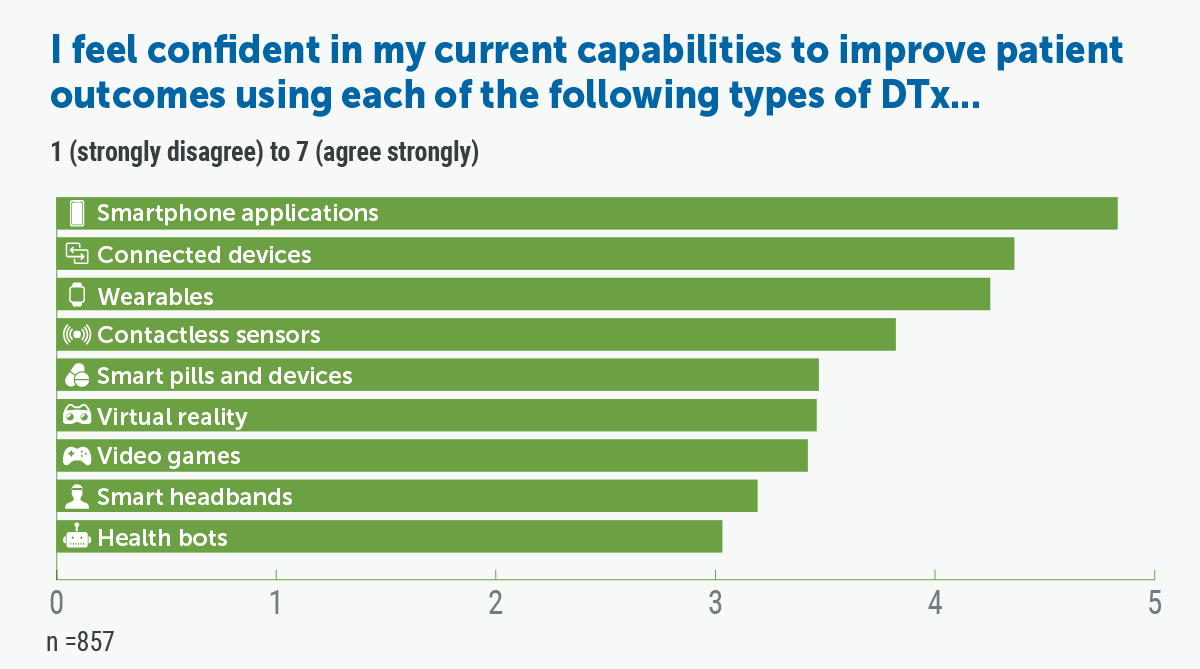
Healio Research Digital Therapeutics Survey (DTx)
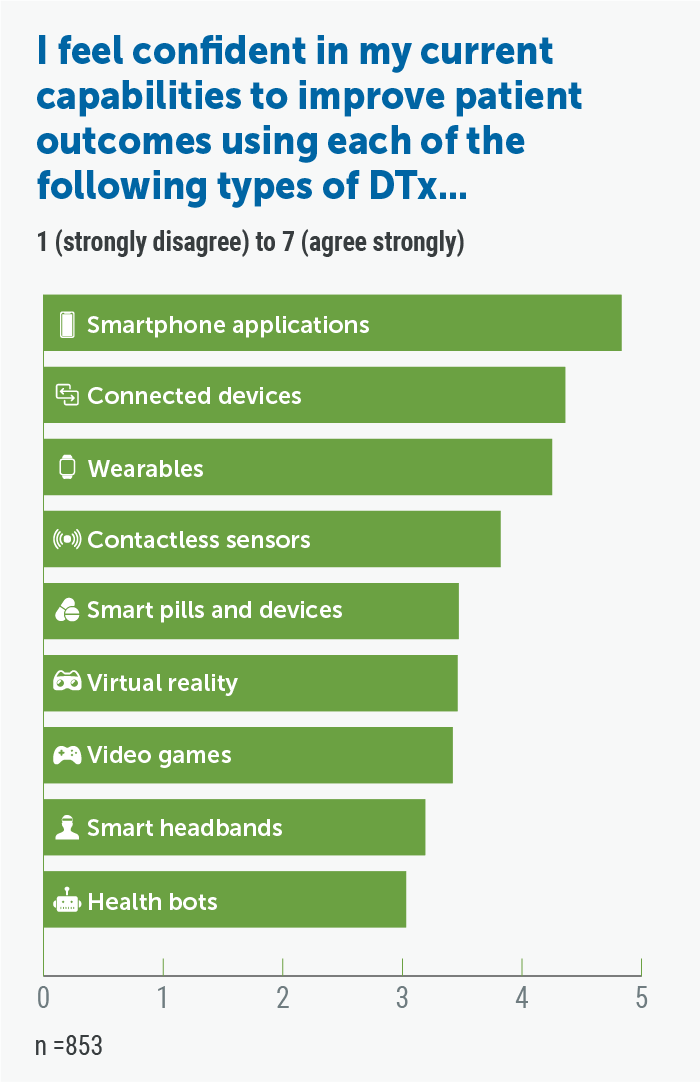
Healio Research Digital Therapeutics Survey (DTx)
HCPs were worried about health disparities that may emerge as DTx products gain traction.
“The people who need some of these tools to truly manage disease can’t afford it and/or the patients are not willing or they’re skeptical,” wrote one survey taker.
It is clear more education is needed for HCPs.
“DTx are limited in scope and not currently applied in many fields of medicine; however, I do believe with [an] increase in provider awareness of DTx, many would utilize as adjunct to their treatment plan,” one HCP wrote.
“It’s an exciting and quickly evolving field of options, with many very good developers, but LOTS of concerns remain, not the least of which is cybersecurity and the protection of patient info and health data,” one HCP wrote. “Not to mention the potential harm that could potentially befall patients using such digital therapeutics if breached by hackers, similar to what they’ve already achieved with remote monitoring devices. Like I said … exciting, yet scary future. Time will tell and lots more independent research needs to be conducted.”
Healio writes regularly about DTx. Read more; www.healio.com/topics/digital-therapeutic.

